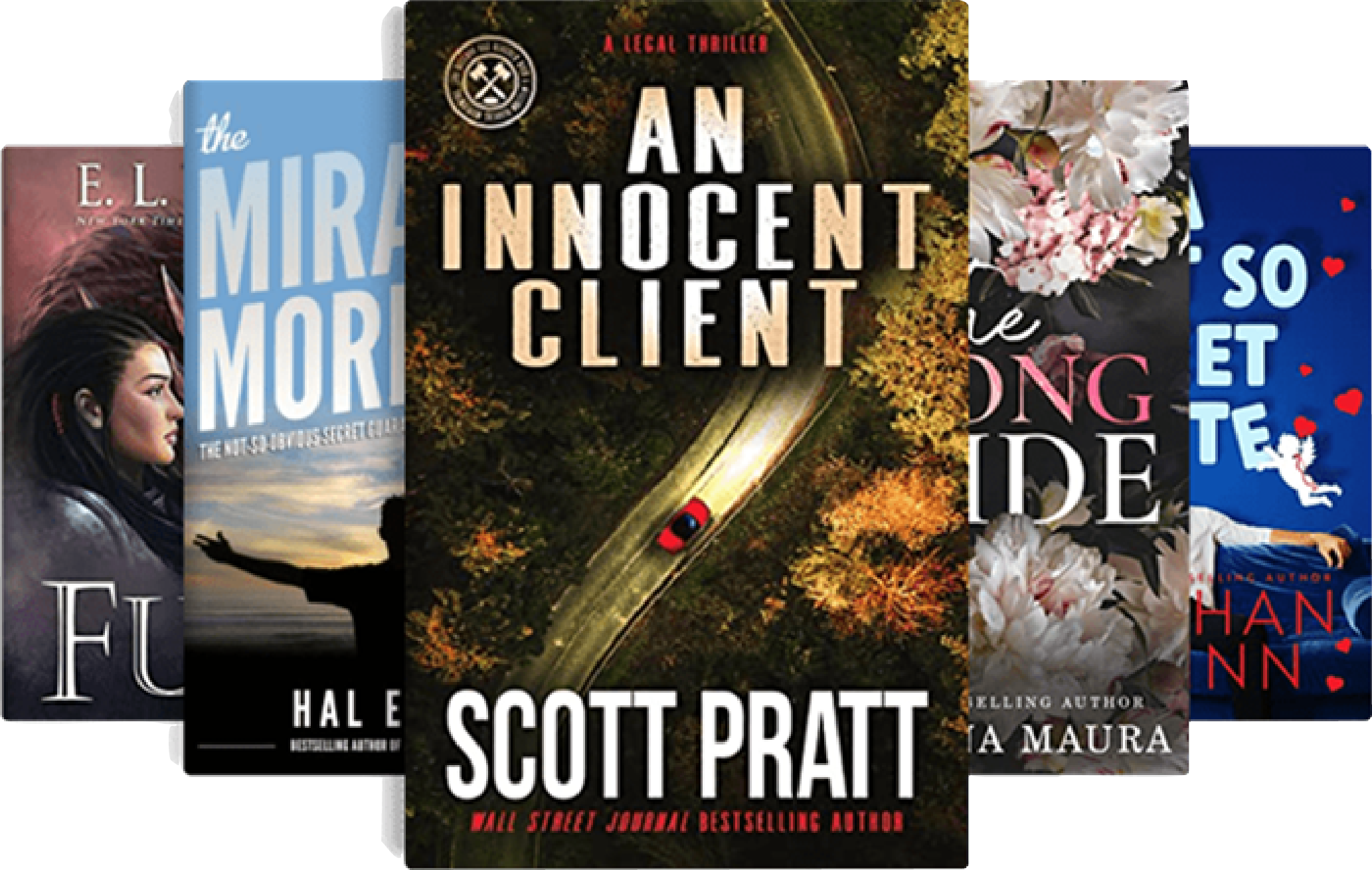What if your favorite author once lived in the shadows? Some of the world’s most admired writers started out by writing for others. They sharpened their craft under borrowed names. For many, ghostwriting was more than a paycheck. It was a hidden stage where talent found its voice.
In this blog, we’ll uncover 5 famous authors who once ghostwrote. Their stories will surprise you. And maybe make you wonder whose words you are really reading.
Table of Contents
ToggleWhy Authors Ghostwrite
Authors need to know that ghostwriting is simple. A writer creates work for someone else who takes the credit. It could be a book, an article, or even a speech. The ghost stays in the background, while the client’s name shines on the cover.

But why would talented writers agree to vanish into the shadows? The reasons are many, and they often say more about survival and craft than secrecy.
The Allure of the Shadow
Before success, many writers needed rent money. Ghostwriting paid the bills. It also offered practice. They could experiment with style while staying invisible. And with no pressure of fame, they learned by doing.
Myth v. Reality of Ghostwriting
Readers often ask: Does Stephen King use ghostwriters? The idea persists because he writes so many books. But King himself has said no. The myth shows how much readers link speed and volume with ghostwriting. The truth is simpler. Some authors ghostwrote early. Others built teams or used editors. But pure ghostwriting is its own craft.
Famous Authors Who Began as Ghostwriters
Before their names lit up book covers, some great writers worked in the shadows. Ghostwriting gave them a way to earn, to practice, and to survive. What’s fascinating is how often their hidden work left hints of genius.

Let’s look at 5 authors who started this way and later became legends.
#1. H.P. Lovecraft
H.P. Lovecraft is known as the father of modern horror. His stories of cosmic dread inspired generations of writers.
Ghostwriting Work
Before fame, Lovecraft made money ghostwriting. He wrote pulp stories for clients who wanted to appear in magazines under their own names. His most unusual client was Harry Houdini, the magician. Lovecraft ghostwrote several articles and stories credited to Houdini.
Famous Examples
Even as he created works like The Call of Cthulhu, Lovecraft kept ghostwriting to survive financially. These jobs helped him refine his style of vivid, eerie description.
#2. Robert Ludlum
Robert Ludlum is best known for The Bourne Identity. His spy thrillers became international hits and later blockbuster movies.
Ghostwriting Work
Before his success, Ludlum did ghostwriting work to support his career. It helped him stay in the industry while building his own stories. After his death in 2001, his brand lived on. Ghostwriters were hired to keep producing “Robert Ludlum” books for years.
Legacy
Even today, new titles come out under his name. Readers still enjoy them, even though Ludlum didn’t write them. His career shows how ghostwriting can extend a legacy.
Here’s Something Interesting!
A lot of readers still ask, does Stephen King use ghostwriters? The answer is no. King has made it clear that he writes his own books. His huge body of work comes from his own pen. At times, he has teamed up with other authors like Peter Straub or co-written with his son, Owen King, but not through ghostwriters.
#3. Katherine Anne Porter
As a Pulitzer Prize winner and the author of Ship of Fools, Katherine Anne Porter became one of America’s respected literary voices.
Ghostwriting Work
Early in her career, she ghostwrote for magazines and newspapers. Her byline was absent, but her words were everywhere.
Impact
Those early jobs helped her find her voice. They also gave her discipline. Later, she channeled that practice into the stories that won her national awards.
#4. V.C. Andrews
V.C. Andrews shocked readers with her gothic family saga Flowers in the Attic. The book became a bestseller and set off a series of sequels.
Ghostwriting Connection
When Andrews died in 1986, her estate faced a problem. Readers wanted more books. The estate hired Andrew Neiderman to write new novels under her name.
Legacy
Since then, dozens of books have been published as “V.C. Andrews.” Most fans know the truth, but the brand continues. It’s one of the most famous ghostwriting cases in modern publishing.
#5. Alexandre Dumas
Alexandre Dumas wrote classics like The Three Musketeers and The Count of Monte Cristo. His adventure stories became world-famous.
Ghostwriting Role
One thing that not many people know is that Dumas didn’t always work alone. He collaborated with Auguste Maquet. Maquet drafted plots and outlines. Dumas expanded them into sweeping novels. Some even say Dumas ghostwrote parts of Maquet’s work.
Collaboration Example
Their partnership blurred the line between ghostwriting and co-writing. Still, it showed how teamwork could create masterpieces that outlived them both.
Side-by-Side Look at Famous Authors as Ghostwriters
| Author | Known For | Ghostwriting Connection | Notable Works |
| H.P. Lovecraft | Horror fiction | Wrote stories for clients, incl. Houdini | Call of Cthulhu |
| Robert Ludlum | Spy thrillers | Early ghostwriting; posthumous series ghostwritten | The Bourne Identity |
| Katherine A. Porter | Literary fiction | Ghostwrote for income before recognition | Ship of Fools |
| V.C. Andrews | Gothic family sagas | Estate hired ghostwriter Andrew Neiderman | Flowers in the Attic |
| Alexandre Dumas | Historical adventure novels | Ghostwrote and co-authored with Auguste Maquet | The Three Musketeers |
Why Famous Authors Turned to Ghostwriting
Even successful authors turned to ghostwriting at some point.
Financial Reasons
Writing doesn’t always pay well. Ghostwriting gave them a steady income when book sales did not.
Experience and Practice
Ghostwriting helped them practice deadlines, styles, and genres. It made them more adaptable.
Legacy and Continuity
Some names, like Ludlum and Andrews, became brands. Ghostwriting kept their work alive after death.
The Ripple Effect of Ghostwriting
Ghostwriting doesn’t just fill pages for someone else. It leaves lasting marks on the writers themselves. The lessons, habits, and even myths that grow out of this hidden work shape how we see both the books and the authors who wrote them.
Lessons from the Shadows
For these writers, ghostwriting was training. It made them flexible. It forced them to meet deadlines. And it gave them a silent classroom for voice and rhythm.
Readers’ Curiosity
The question: Does Stephen King use ghostwriters? comes up again. Why? Because readers think only ghostwriting explains such output. But history shows many famous authors cut their teeth in the shadows. Readers love this mystery. They love unmasking secret voices.
Why Ghostwriting Still Matters Today
Ghostwriting may feel like a secret from the past, but it’s alive and well. The practice has simply moved with the times, shaping modern publishing and giving voices to people who might never write their own stories.
The Invisible Backbone of Publishing
Politicians, celebrities, and even influencers use ghostwriters. Behind every glossy memoir, there may be an uncredited pen.
The Romance of the Hidden Hand
Readers know this, yet they still enjoy the unmasking. They want to peek behind the curtain. The ghost remains part of the magic.
The Ending Note
Ghostwriting isn’t deception. It’s the unseen scaffolding of literature. The five stories above show how even the most famous authors sometimes begin in disguise. It’s not about hiding. It’s about learning, surviving, and shaping craft in silence.
So next time you pick up a book, ask yourself: whose ghost might be whispering behind the words?
At Ghostwriting Help, we honor this tradition. Our team helps ideas find their voice, even if it’s behind the curtain. If you’re ready to tell your story, we’ll help shape it. The world deserves to hear your words — even if they carry a ghost’s touch.
Frequently Asked Questions
1. What is ghostwriting in literature?
Ghostwriting is when an author writes a book or story that is officially credited to someone else. The ghostwriter stays anonymous while the named author or brand takes the spotlight.
2. Did famous authors really work as ghostwriters?
Yes, many well-known authors like H.P. Lovecraft and Katherine Anne Porter supported themselves through ghostwriting early in their careers. It was a common way to earn money and gain experience.
3. Why would a successful author use a ghostwriter?
Some authors become brands, and ghostwriters keep producing books under their names. This helps estates like V.C. Andrews or Robert Ludlum continue publishing long after the original author passed away.
4. Is ghostwriting considered dishonest?
Not at all. Ghostwriting is a professional agreement. Both sides know the terms, and readers usually care more about the story than who wrote it.
5. Can ghostwriting help aspiring writers build a career?
Yes. Many writers start as ghostwriters to earn income, sharpen skills, and build discipline. It often serves as a stepping stone to publishing under their own names.





